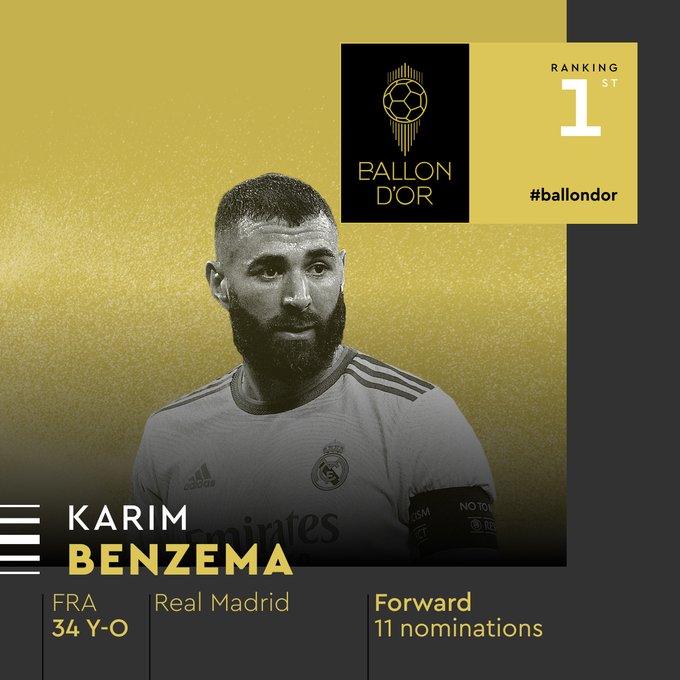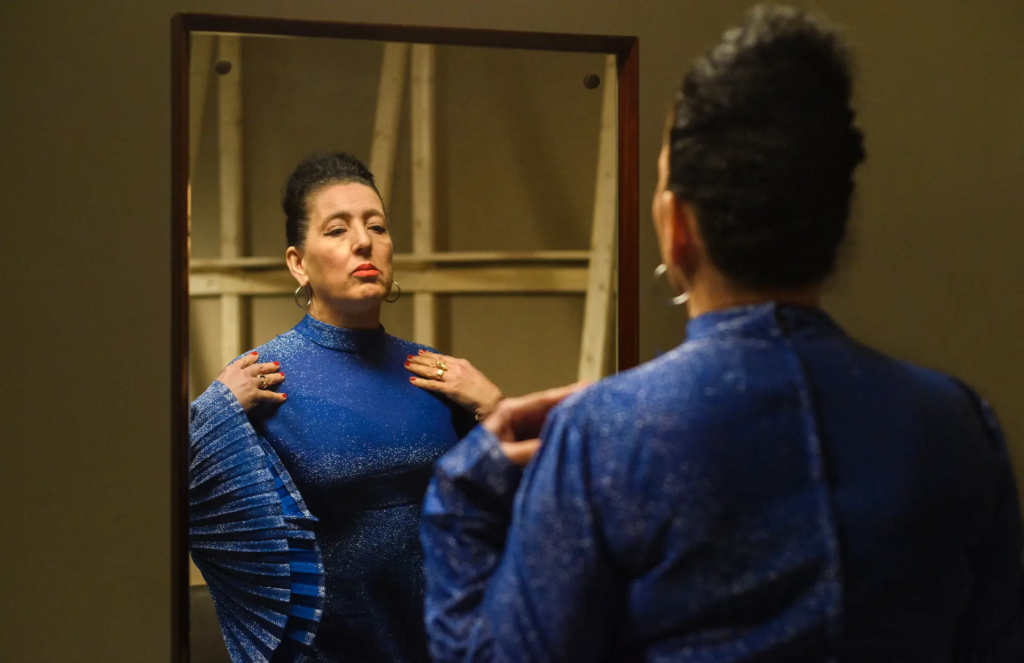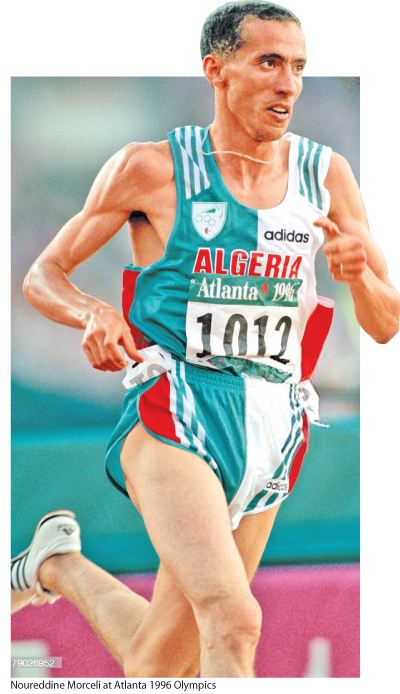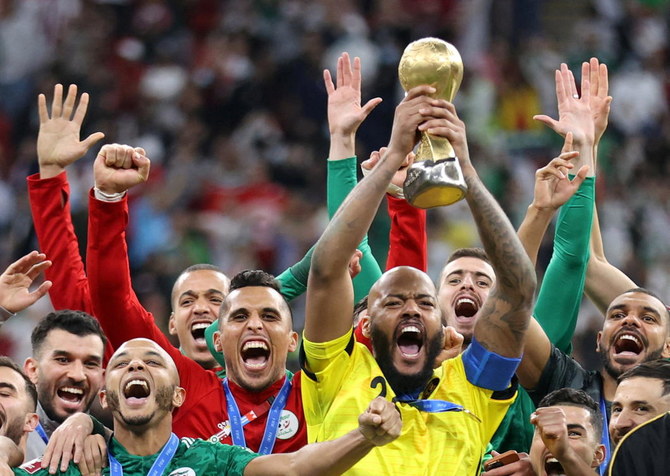Just when every single one of his supporters thought he would always be remembered as a cult hero and nothing else, Karim Benzema has reached the pinnacle of the sport 14 years after signing for Real Madrid labeled as the next Ronaldo Nazario. Overcoming ferocious criticism from his own fanbase and from some of his coaches during this time, Benzema carried Real Madrid to an improbable Champions League & LaLiga double all while scoring 44 goals in 46 appearances in the 2021-2022 season.
Karim Benzema has won the 2022 Ballon D’Or no less than 13 years after signing for Real Madrid. It has not been an easy path for Benzema as he had to change his style of play and prove many of his doubters wrong along the way. In those 13 years, he went from being a young, misfit player who struggled in his early days in Madrid to becoming a captain and a true leader for the biggest club in world football.
Here’s how he did it.
I. Struggles: From “The Next Ronaldo Nazario” to “The Next Anelka”
Saying that Benzema never was one of the world’s greatest strikers would be wrong. From 2009 to 2022, the French attacker went through struggles on and off the field but always showed that the talent to be one of the best was there. Real Madrid president Florentino Pérez saw that promise and raw potential and decided to visit Benzema’s home in Lyon to secure his signing in the summer of 2009.
“I was hanging out with my friends and my family called me and said: “You need to come home, Florentino is here.” I opened the door, I saw him there and I just didn’t say anything,” revealed Benzema a decade later.
Still, Benzema failed to establish himself as a regular starter for Madrid until Gonzalo Higuaín suffered a back injury in 2011. José Mourinho, who was the team’s coach back in the day, signed Emmanuel Adebayor on loan because he didn’t feel the 24-year-old Benzema could lead his offense. Mourinho even said that he would rather go hunting “with a hound” [Higuaín] but that he would have to go “with a cat.”
Thing is, Mourinho was right. Benzema was struggling on the pitch and appeared to be careless and apathetic during his first few seasons in the Spanish capital.
“My first season in Madrid, my first six months or so were very tough. I was by myself; I didn’t speak Spanish and that made it all more difficult. Furthermore, I just got to a new world, another team, another style of football. Luckily, I didn’t give up,” he said when asked about that time in an interview published this past summer.
That’s the main reason why most fans and members of the media often compared him to former Real Madrid attacker Nicolas Anelka, who signed for the club in 1999 when he was 20 years old. Anelka left Madrid after just one season having displayed some of the symptoms which kept Benzema out of the team’s starting lineup a decade later. Anelka went on to have a very solid career, but Madrid didn’t reap the benefits.
With Benzema, Florentino Pérez remained patient –perhaps the fact that he was his personal gamble gave the Frenchman a longer leash– and decided to keep trusting his potential knowing that Real Madrid had another historically great player who could lead the team towards the most successful period in the history of the club.
II. Stability without stardom: Cristiano’s Sidekick and the BBC years
While Benzema showed real moments of brilliance during Mourinho’s tenure in the Spanish capital (2010-2013), even scoring 28 goals across all competitions during the 2011-12 season, he always was behind Gonzalo Higuaín in the depth chart.
When Mourinho left the club in 2013, Real Madrid decided to sell the Argentinian striker to Napoli and gave Benzema the chance to be an undisputed starter under new coach Carlo Ancelotti and alongside two great scorers like Cristiano Ronaldo and new signing Gareth Bale. The ‘BBC’ was born.
Ancelotti then created a new role for Benzema, the role he played for most of his career: The 9.5. the French striker wasn’t playing as a false nine, but he was a playmaker through the center-forward position. There, Benzema would often receive the ball and assist to either Ronaldo or Bale while drifting to both flanks to create space for them to finish plays in the center of the attacking line. Ronaldo and Bale were ruthless finishers during these years, but Benzema deserves credit for making their jobs way easier.
“When Cristiano Ronaldo played for Real Madrid, he scored 50 to 60 goals a year. So, my moves were to give him an advantage on the field, generate spaces, because I passed the ball well in the opponent’s area. He was much more effective than I was,” said Benzema earlier this year.
The team won La Décima (their tenth Champions League trophy) and the Copa del Rey during that first season. Ancelotti left the club a year later, but his successor Zinedine Zidane kept the same offensive system going and conquered a historic three-peat with Benzema being the facilitator for Ronaldo and Bale.
Even if Benzema wasn’t focusing on scoring goals, he still found the back of the net 28 times in just 34 appearances back in 2015-16. He was delivering. Zidane being his childhood hero and one of football’s greatest players of all time, the French attacker spent time after every training session working and polishing his game with his coach, with his idol.
Everything changed in 2017-18. Real Madrid struggled immensely throughout the season and didn’t even compete for LaLiga against Barcelona. Benzema had one of his worst campaigns as a Real Madrid player and scored only 12 goals. Somehow, the team managed to win the third consecutive Champions League title and completing the aforementioned three-peat, but both Cristiano Ronaldo and Zidane felt like it was the end of an era and decided to leave the club.
“Every year is the same. I play football to make history. Sometimes people don’t get what I do on the field but I’m here to help my teammates. Of course, I always want to score goals, but sometimes that’s not possible,” said Benzema in 2018, the first campaign without Cristiano Ronaldo and the first time he scored 30 goals in his career. After years of being a playmaker for Ronaldo, Real Madrid needed Benzema to score. He delivered.
III. Mentoring the new generation during Real Madrid’s rebuild
Benzema faced ferocious criticism from his own fanbase during the first few months of the 2018-19 season. The fans at the Santiago Bernabéu appeared to think that he was to blame for the team’s struggles last year. He was never a fan favorite. In 2016, the crowd whistled when he was about to take a penalty-kick, singing Álvaro Morata’s name as they wanted the homegrown attacker to take it instead.
When Ronaldo left the club, Benzema accepted the challenge and realized the fact that he had to score more goals. He rose to the occasion while other attackers like Marco Asensio or even Gareth Bale appeared unwilling to embrace more responsibilities in the offense.
That first season was terrible for the club, even if Benzema scored 30 goals and delivered 9 assists. Zidane’s successor Julen Lopetegui was sacked after just a couple of months and former Real Madrid player and current Castilla coach Santiago Solari was appointed as an interim coach for the remainder of the season, until Zidane made his return to the club just a year after his resignation.
Benzema kept doing his thing and scoring at a solid rate during those seasons but now he was also a mentor for two talented prospects signed from Brazilian football: Vinicius Junior and Rodrygo Goes.
It wasn’t a very successful era for Madrid, but they did conquer the 2019-20 LaLiga title with brilliant performances from goalkeeper Thibaut Courtois and Benzema himself in the condensed schedule after the Covid pandemic.
In the summer of 2021, Zidane left the club for good and a familiar face returned to the Bernabéu. Ancelotti was back. What followed during the next few months will be remembered as one of the most memorable seasons in the history of the club.
IV. Benzema unchained: Carrying Madrid towards a historic double
44 goals in 46 appearances. 15 goals in the Champions League. A hat-trick to rescue his team and advance to the next round in the return leg against Paris Saint-Germain. A hat-trick against Chelsea in the first leg of the Quarterfinals at Stamford Bridge. 10 goals in the 7 do-or-die knockout games in the biggest club competition in the world. Greatness.
Benzema overperformed his xG (expected goals) in 12 goals last season. Courtois and Vinicius were also instrumental in the team’s success and performed better than the French striker in the Champions League Final, but Benzema was historically great all season long with his scoring but also with his playmaking, which helped Vinicius become the player he is today.
It took Benzema a while to get where he stands today, and it would be fair to say that nobody saw this kind of greatness coming from him. In fact, Florentino Perez would have likely replaced him with other strikers had he not been his protégé, his personal signing. None of that matters now. Benzema stayed and he delivered big time in a season where his team needed him the most.
He was hands down the best player in the world of football during the 2021-22 season. He earned every bit of this Ballon D’Or and every single madridista should be proud of him and proud of having him wearing the captain’s armband. They saw Benzema grow into the player, the leader, the captain, the mentor and the man he is today.
“I play for the ones who like and understand football.” Benzema transcended that quote last season and played for every single football viewer around the world, casual or not. He finally earned global recognition.
Karim Benzema is now a Ballon D’Or winner. The world’s greatest
source/content: managingmadrid.com / Lucas Navarrete (headline edited)
______________

_______________________
FRENCH / ALGERIAN








